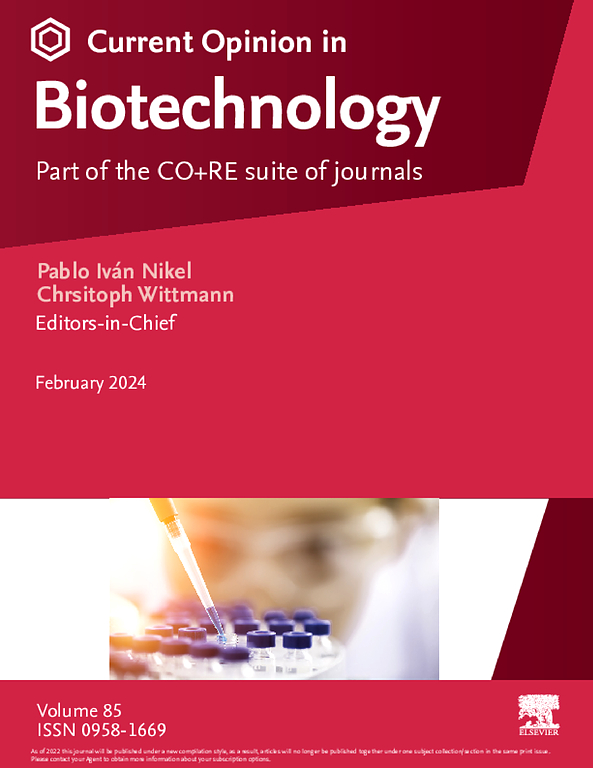IF 7.1
2区 工程技术
Q1 BIOCHEMICAL RESEARCH METHODS
引用次数: 0
摘要
一碳(C1)温室气体是全球气候变化的主要驱动力。将这些气体发酵成价值更高的产品是一项具有吸引力的气候行动和可持续发展战略。C1 气体发酵细菌是很有前途的底盘生物,但各种技术挑战阻碍了将其扩大到工业生产水平。细菌微腔(MCP)是封装酶通路的蛋白质细胞器,可带来多种新陈代谢优势,从而提高这些细菌的工业潜力。据预测,许多种类的气体发酵细菌都能在原生环境中产生 MCPs。在这里,我们将介绍如何识别和设计这些细胞器,以封装将 C1 气体转化为有价值化学产品的途径。本文章由计算机程序翻译,如有差异,请以英文原文为准。
Engineering bacterial microcompartments to enable sustainable microbial bioproduction from C1 greenhouse gases
One-carbon (C1) greenhouse gases are the primary driver of global climate change. Fermenting these gases into higher-value products is an attractive strategy for climate action and sustainable development. C1 gas-fermenting bacteria are promising chassis organisms, but various technical challenges hinder scale-up to industrial production levels. Bacterial microcompartments (MCPs), proteinaceous organelles that encapsulate enzymatic pathways, may confer several metabolic benefits to increase the industrial potential of these bacteria. Many species of gas-fermenting bacteria are already predicted to natively produce MCPs. Here, we describe how these organelles can be identified and engineered to encapsulate pathways that convert C1 gases into valuable chemical products.
求助全文
通过发布文献求助,成功后即可免费获取论文全文。
去求助
来源期刊

Current opinion in biotechnology
工程技术-生化研究方法
CiteScore
16.20
自引率
2.60%
发文量
226
审稿时长
4-8 weeks
期刊介绍:
Current Opinion in Biotechnology (COBIOT) is renowned for publishing authoritative, comprehensive, and systematic reviews. By offering clear and readable syntheses of current advances in biotechnology, COBIOT assists specialists in staying updated on the latest developments in the field. Expert authors annotate the most noteworthy papers from the vast array of information available today, providing readers with valuable insights and saving them time.
As part of the Current Opinion and Research (CO+RE) suite of journals, COBIOT is accompanied by the open-access primary research journal, Current Research in Biotechnology (CRBIOT). Leveraging the editorial excellence, high impact, and global reach of the Current Opinion legacy, CO+RE journals ensure they are widely read resources integral to scientists' workflows.
COBIOT is organized into themed sections, each reviewed once a year. These themes cover various areas of biotechnology, including analytical biotechnology, plant biotechnology, food biotechnology, energy biotechnology, environmental biotechnology, systems biology, nanobiotechnology, tissue, cell, and pathway engineering, chemical biotechnology, and pharmaceutical biotechnology.
 求助内容:
求助内容: 应助结果提醒方式:
应助结果提醒方式:


